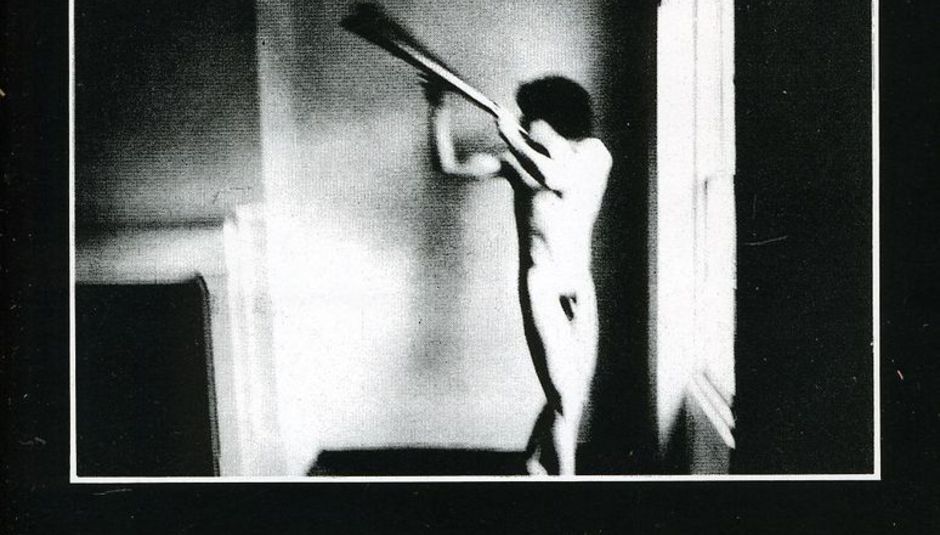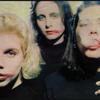To mark the release of Martin Aston's book, Facing the Other Way: The Story of 4AD, DiS celebrates one of our favourite labels with a series of pieces exploring 4AD's history. Here Tom Fenwick takes a look at some of the label's most vital debut albums...
Under the auspices of Ivo Watts-Russell, 4AD were responsible for producing some of the finest acts of the final two decades of the twentieth century. Unsurprisingly, among their prolific releases were more than a few tremendous debuts.
Obviously, a great band doesn't always equate to a great debut, but 4AD began at a time of less knee-jerk profiteering. A time where groups were allowed to develop their sound, growing with each release. So whilst The Cocteau Twins might be remembered as one of the defining bands of 4AD, their debut Garlands wasn't quite the finished article, their star only ascending with each successive album.
The albums listed below weren't always the most critically acclaimed, or the best selling, but they are undoubtedly definitive works. Albums that would indelibly, which transcend genres and boundaries, which kickstart movements and mark their makers (for both good and ill) for the rest of their career. Records that can stand the test of time, and still sound as alive and impossibly relevant today as they did over thirty years ago.
Some may feel obvious, but if they are obvious it's only because they are astounding. Many would find influence in these words and sounds over the following three decades - but this is where it all began.
Bauhaus - In The Flat Field - 1980
It's the sonorous grit of a reverberating guitar, interspersed by the the siren call of a distant sonar on 'Double Dare' that first beckons you into the unknown. Soon discordant percussion will judder your spine and the piercing shriek of Peter Murphy's voice will wrap itself around your throat like a cold trembling hand: but by then it'll be too late and Bauhaus have you in their grasp.
In The Flat Field is a milestone in two senses, its 1980 release marking not only the debut LP of Northampton's legendary four-piece, but also the first full-length record by any band to be released on the 4AD imprint. Critically derided at the time, the album topped the indie chart, their commercial success more than making up for damning reviews from the press - NME describing the album as "Nine meaningless moans and flails". They were right about one thing, it does contain 'moans and flails', but thirty years on the self-produced record still feels as raw and claustrophobic as the day of its release, even now refusing to kowtow to expectations.
This self-contained statement of intent playing-out across tracks like the brittle uncertainty of 'Spy In The Cab', the cavernous otherworldly cabaret of 'Nerves' and the exquisite blasphemy of 'Stigmata Martyr'; a paroxysm of catholic guilt which crawls under your skin an doesn't leave - part catharsis part haunted house exorcism.
Whilst for many their earlier singles - notably 'Bela Lugosi Is Dead' - represent what has become a defining moment of the goth scene, In The Flat Field always transcended easy definition. Taking cues from glam and pre-punk art-rockers, but removing the camp and rock-romanticism in favour of stark androgyny, In The Flat Field stripped expected notions of the post-punk landscape back to the bone. Leading a charge to redefine rock music through jet-black intensity, leaving an album that is not solely for of the dark of eye-shadow and black of hair, but for anyone willing to embrace 'otherness' in alternative indie rock.
The Birthday Party - Prayers On Fire - 1981
As much a second bite of the cherry as an official debut: before the death and destruction, before dark nights of the soul in West Berlin, before arrests, bandmate ejections and intravenous injections, prolific careers and assured places in the pantheon of music's elder gods, there came Prayers On Fire.
The catalyst for The Birthday Party's 4AD debut was a sense of embittered dissatisfaction. They had arrived in a cold and unwelcoming England in late 1980, aware that after a few years slaving at the coalface of music in Melbourne - recording an album under the guise of The Boys Next Door - they would have to start from scratch. Their mix of blues, experimental punk and garage rock riddled with Nick Cave's primal and profane lyrics saw them at odds with their musical contemporaries - creating an outsider mentality that in many ways aligned with Bauhaus.
The LP has a incendiary theatricality in both music and delivery, the woozy chaos of a transgressive circus with a profane ringmaster in the form of Cave. His vocals skirting the edges of aggression and terror with equal measure, "First I tried to kill it with a hammer!" he scowls wide-eyed at us on 'Just You and Me' with the aural equivalent of a thousand yard stare that burns through the music, "And then I tried to kill it in the bed!". He may have become a more accomplished craftsman - this is no 'Brompton Oratory' - but what he lacked in acute lyricism he made up for in Sturm and Drang.
Of course, these howls and yelps wouldn't have the same impact if their weren't underpinned by the slow burning discordancy of a band who seemed totally in control of their abject unpredictability. Rolling drums and sinewy atonal guitars soundtrack songs like 'Ho Ho', but just as you become comfortable, violent and unexpected jabs of brass invade 'Nick The Stripper' to throw you off balance. Then, when you think you have the measure of things, there's the discordant end-of-the-pier-from-hell show that resides in 'Figure Of Fun' or the skewed barroom blues of 'Kathy's Kisses'.
An experience like few other bands of the age could even hope to provide, three decades on Prayers On Fire still remains a wild and unsteady ride - the raw energy and madness of which has rarely been replicated or bettered.
This Mortal Coil - It'll End In Tears - 1984
It'll End In Tears is a sonic patchwork in every sense.
Opening with a devastating triptych of covers - two from Big Star and one from Tim Buckley - their power alone is enough to devastate. Whether it's in the subtle melancholic yearning of Gordon Sharp's voice on 'Kangaroo', the trembling beauty of the piano that accompanies Howard Devoto fragile vocals throughout 'Holocaust', or the epoch defining Cocteau-ized rendition of 'Song Of The Siren'. A song awash with brutal simplicity; Elizabeth Frazer's voice soaring over Robin Guthrie's guitar towards peerless pop.
Arriving in the wake of the 4AD's more experimental post-punk thrashers, who by 1984 had emerged blinking into the sunlight and promptly imploded, This Mortal Coil's debut marked a turning point in the label's trajectory. One of their most lauded acts in the 1980's, they never performed live, nor did they tour - but then again they never really existed - at least in any tangible sense.
This 'supergroup' was in reality a loose collective of artists who formed under the direction of label owner Ivo Watts-Russell and the exquisite production of John Fryer. Built from a combination of 4AD stable-mates (The Cocteau Twins, Dead Can Dance and Modern English) with contributions from contemporaries outside of that circle, they formed a group which could never exist beyond the confines of a studio. Yet together would create a work which was not only innate in it's beauty, but would define the aesthetics of the entire label for years to come.
Of course, the opening covers will draw you in but they are only one part of this album's power and charm. If you remain a little longer and you'll be treated to the heavy atmospherics of Liz Gerrard on 'Waves Become Wings', the otherworldly beauty of 'Barramundi' - all wistful guitars and field recordings - and 'Fyt'; an instrumental which slowly disperses it's hypnotic wall of sound with a refreshing deftness that really does belie it's age.
They were a group like no other, coming from a company like no other who produced a record like no other. One which established 4AD not only as a label but as a 'sound'.
The Pixies - Surfer Rosa - 1988
The first thing you hear is the raw pounding beat of Dave Lovering's drums building a percussive stockade. He's quickly joined by 'Mrs. John Murphy' her tight basslines anchoring the rhythm, holding it all together while Joey Santiago's guitar explodes with garage-rock angst. Then there's Black Francis.
His feral witterings arriving from nowhere, like a madman who stumbled into the studio and onto the recording, only for the band to forget about editing him out of the mix. He's incoherently wailing about infidelity, pretty faces and Japanese cuisine, until what you assume might be a chorus begins to drown him out. Then everything stops dead - "Your bone's got a little machine" they all croon like a foul child's rhyme - before returning headlong to the maelstrom.
This is the first minute of the first song on Surfer Rosa. Life will never be the same again.
It was late 1987 and riding high on the warm critical reception of the Come On Pilgrim EP, The Pixies went into the studio recording under the guidance of Steve Albini and his invaluable, unconventional production. Over ten days they crafted thirteen tracks of raw aggression, surrealism and guitar-pop that has often been imitated but rarely superseded. A aural salmagundi, which covers more thematic and sonic ground in the course of it's running time than anything that even they would go on to produce in the following years.
Some tracks like 'Vamos' or 'Something Against You' - with it's nightmarishly inaudible vocals - race towards you on like an unstoppable sonic freight train. Some soar above the madness like the the laconic/iconic howls of 'Where Is My Mind' or the dirge-like 'River Euphrates'. Others are surreal and grotesque speed-pop experiments, like the aforementioned 'Bone Machine' or 'Broken Face' with it's chorus of "I've got no lips, I've got no tongue". Then there is the perfection of 'Gigantic'. Kim Deal delivering the sweetest blow on a track that is in essence a huge double-entendre, one which she sings as though it were a love song.
There has long been chatter about Surfer Rosa's, about its wider significance to the musical landscape, what it proceeded, what it influences and how it fares against to the band's later work. All of this speculation has it's place, but sometimes it wouldn't be such a bad thing to recall this holy text for what it really is: an intense, fun, explosive, terrifying and at times awe-inspiringly, rockin' good time.
Lush - Spooky - 1992
Three years after inking their contract with 4AD Lush seemed unstoppable. Yet, despite an ardent fanbase, a blistering live reputation, four EP's, a well received mini-album, plus a place amongst the ranks of indie pop's detached, blank-eyed shoegazing forefront - they still hadn't produce a full-length debut.
When it did arrive in 1992, Spooky - produced by Cocteau Twin Robin Guthrie - was met with an oblique critical appraisal. The naysayers would claim that Guthrie smothered the lyrical and vocal warmth of Emma Anderson and Miki Berenyi's sugary pop with his overzealous production; losing much of the character that their music once held beneath his deadening duvet of sound.
However, this assessment seems blind to the synchronicity between his production and their harmonic pop. A combination which is only further illuminated through hindsight, and places Spooky up with some of the finest shoegaze albums of that period.
Guthrie's production submerged their music in a thick sonic caul, adding hidden dimensions and new depths rather than simply retreading what had come before. His contribution pulled them back from the edge whenever they seem in danger of exploding into saccharine pop, bringing a sense of the unexpected to their jejune lyrics and winsome melodies.
That's not to say Spooky is in short supply of indie-pop gems - you need only listen to 'Tiny Smiles', 'Laura' or 'For Love' to prove that. Although by couching them in shimmering sonic complexity and swirling astral guitars, it allowed a burgeoning sense of unease to creep into their sound; half-caught lyrics and meandering vocals getting lost in translation, as tracks like 'Monochrome' or 'Covert' turn from angelic to desolate with a change of chord.
Years later Lush would become an unabashed Britpop act, retaining the sweetness of their sound but ditching the clamorous waves of noise. Luckily Spooky remains a testament to what they once were, a maligned highlight of the era that bridged the gap between shoegaze and pop, with a collection of songs that shone brightly; their pure pop aesthetics only amplified by the spectral waves of sonic haze that cradle them.
Facing the Other Way: The Story of 4AD by Martin Aston is out this week, published by HarperCollins imprint, The Friday Project.






















